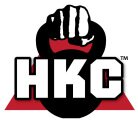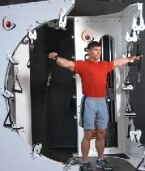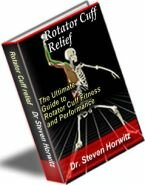HMB
HMB is a breakdown product (metabolite) of the aminoacid leucine. Leucine is found in all dietary protein and is an essential building block of protein in all tissues. Therefore, it is classified as a nutrient because it is found in some foods (catfish,catfish, alfalfa, grapefruit) in small amounts and breast milk. It is one of the three branched chain amino acids (carbons which branch from the main linear carbon backbone). Leucine has a role in regulating protein synthesis and protein breakdown.
Early research found that both leucine and KIC (Ketoisocaproate, first metabolite of leucine) decreased proteolysis and increased protein synthesis in isolated tissues. The data indicated that this effect was not due to leucine, but to KIC or some further breadown product in the pathway, of which there are eight additional biochemicals. In the early 1980, researchers suggest an alternative metabolic pathway of leucine metabolism, which indicated that KIC was metabolized by an enzyme distinct to HMB. A series of eight years of animal experiments indicated that HMB is the bioactive component of leucine metabolism that plays a regulatory role in protein metabolism. In response to stress, the adrenal gland releases cortisol which causes muscle protein loss and suppresion of the immune system. In animals, this results as weight loss and a marked suseptibility to disease, both of which can impact the economics of animal production.
In the newborn chick, HMB decreased mortality by up to 90% during the first 10 days. In young calves, up to 80% develop pneumonia. HMB decreased this incidence by up to 40% and decreased mortality by 50%.
Human studies:
16 healthy, non-obese subjects between 21 and 45 were randomly assigned to 1 of 4 groups given HMB for 8 days. Dosafes were 0.5, 1, 2, or 4g per day. Over the 8 days, HMB did not produce any adverse effects on blood chemistry, hematology or symptomatically.
Second phase of the study- 6 males studied for 14 days on placebo and 14 days on 2g HMB/day. The periods were in random order and subjects received the same controlled diet during each period. After two weeks the only change in blood chemistry was a decrease in blood cholesterol. The overall protein status of the subjects appeared to improve as indicated by an 18% decrease in urine nitrogen when the subjects were fed HMB.(3)
Two human performance studies: (catabolic blocking agent)
Intense resistance exercise results in stress that can cause muscle damage and ultimately increase muscle protein breakdown. This is also accompanied by increased muscle proten synthesis, but unless muscle protein synthesis exceeds breaksown, net muscle growth will not occur. It was postulated that HMB in trained subjects would decrease muscle protein breakdown and therefore, increase muscle growth.(3)
A study at Iowa State was done in which 41 healthy males were divided into 3 groups: control, 1.5 mg/day, 3mg/day of HMB in orange juice. The subjects were weight trained for 3 weeks and ate similar diets. CPK, LDH plasma levels and 3-methylhistidine excretion levels in the urine were decreased suggesting diminished muscle damage.
Concommitant with the decrease in muscle damage was a 55% increase in lean tissue gain over the 3 weeks study. "In conclusion, HMB appears to partially protect muscle damage and proteolysis associated with strenuous muscle exercise and in turn may result in more rapid lean tissue gain." (2)
The results of a second study designed to examine the effects of HMB on untrained and trained subjects was presented at the 1996 Experimental Biology Meeting on April 15, 1996. This was a four week, double blind study in which subjects ingested three grams of HMB in capsules given in three divided doses per day to both trained and untrained subjects while they participated in an intense weight-training program.
HMB was equally effective for both groups. HMB increase LBM 4.44lbs or 3.1% and decreased bodyfat by 2.17lbs or 7.3%. There was an increased bench press of 22lbs., which represented a 37% absolute increase over the control group.
There are two hypotheses on HMB's mechanism of action:
- HMB may be an essential component of the cell membrane. Scientists propose that under stressful conditions, the body may not make enough HMB to satisfy the increase nees of tissues. Or, stress may alter enzymes or concentration of certain biochemicals that decrease normal HMB production. Either scenario would require dietary supplementation of HMB.
- HMB may regulate enzymes responsible for muscle tissue breakdown. This is supported by several studies where CPK and 3-MH were decreased. A recent study using isolated chick and rat muscle indicated that HMB can directly decrease muscle protein breakdown.
HMB appears to have applications in muscle-wasting diseases in humans and may have application in slowing the loss of lean tissue which usually occurs with the aging process.(3)
The only legitimate supplier is Metabolic Technologies, Inc. of Ames, Iowa. This company has licensed the HMB patents from the Iowa State University Research Foundation.(1)
- Phillips, B. "Uncensored Q & A" Muscle Media 2000, May,1996, p.34.
- Rice,D., et.al. "Role of beta-Hydroxy beta-methyl butyrate (HMB) During an Acute Exercise-Induced Proteolysis" Medicine and Science in Sports and Exercise 27Supplement(5):S220, 1995.
- Stout, J. "HMB" Muscle Media 2000 December, 1996, 116-121.
Muscle Media 2000 1/96, 46-51.
|
The Ultimate Nutritional Lie Detector Test LEARN MORE 
|
Kettlebell Rehab

Click Here
To See How Kettlebells will transform your body!
Vortex Rehab

Click Here
To See How This
Revolutionary Machine
Can Help You!
Partner / Support

Loans up to 3 months - fast cash advances for up to 90 days and up to $5,000!


















